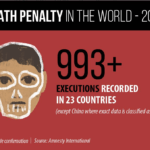The €672.5 billion Recovery and Resilience Facility is the key tool in the EU’s Covid-19 recovery plan to support reforms in response to the crisis.
During the February plenary session, MEPs will vote on the rules establishing the Recovery and Resilience Facility, the flagship EU programme in the €750 billion Covid-19 recovery plan. Parliament and Council reached a provisional agreement on the instrument in December 2020.
It will offer large-scale support to EU countries for the investments and reforms needed to mitigate the economic and social consequences of the pandemic and to prepare the EU economies for a sustainable, digital future.
Grants and loans
The money will be available as grants and loans. The grants will amount to €312.5 billion in 2018 prices (the actual amount will be adjusted upwards to take account of inflation).
The allocation of the grants among countries will be based on several criteria: in the initial phase – until the end of 2022 – these will include population, gros domestic product per capita and unemployment in 2015-2019. Later the performance of the economy in 2020 and 2021 will be taken into account instead of unemployment. The European Commission will have to make commitments by the end of 2023 for the full amount of the grants to EU countries and the money will have to be paid by the end of 2026.
Loans will be provided at the request of member states by the end of 2023 up to a total of €360 billion in 2018 prices. The level of loans for each country will be capped at 6.8% of the country’s gross domestic product.
What the money will be invested in
In the negotiations with the Council, MEPs insisted that the countries use the money in line with EU priorities. “EU recovery money will go to EU priorities. The EU recovery won’t be a cash machine for national policies and domestic agendas,” said Dragoş Pîslaru (Renew Europe, Romania), one of the lead MEPs on this, after the announcement of the provisional deal with the Council.
Another lead MEP Eider Gardiazabal (S&D, Spain), emphasised that while the funds should alleviate the immediate social impact of the crisis, they should also support long-term EU goals such as the green transition and digitalisation. “We must bear in mind that it is the most important investment programme in the coming years, and we have to seize the opportunity [for reform],” she said.
The rules list six areas that the Recovery and Resilience Facility will support:
- The green transition
- The digital transformation
- Smart, sustainable and inclusive growth
- Social and territorial cohesion
- Building resilience and crisis preparedness
- Policies for the next generation, including education and skills
National plans should allocate at least 37% of the budget to climate and biodiversity and a further 20% to digital measures. The rules prohibit the funding of measures that cause significant harm to the environment (the do no significant harm principle).
How it will work
In order to receive support, member states must prepare recovery and resilience plans proposing a set of reforms and public investment projects that could be implemented by 2026. These plans will be integrated into the European Semester cycle of economic coordination and should be submitted by 30 April.
The Commission will assess the plans and make a proposal to the Council about the amounts of grants and loans to each country and the targets and milestones to be achieved. The Council then has to adopt the plans.
National measures taken in relation to the Covid-19 crisis since February 2020 are also eligible for support.
Payments will be made once the milestones and the targets are reached by the member states, but countries can request pre-financing of up to 13% of the total amount, which will be paid once their plan is adopted by the Council.
Member states will report on the progress achieved twice a year within the European Semester framework.
Democratic legitimacy
In the negotiations, Parliament pushed for more transparency. Under the agreement with the Council, the Commission will send all information concerning the national plans and its proposals for Council’s decisions simultaneously to both Parliament and the Council.
Every two months, the Commission may be invited by parliamentary committees to discuss the state of the EU recovery and the progress by member states towards their targets.
The Commission is also required to prepare annual reports on the implementation of the instrument and other evaluation reports.
Siegfried Mureşan (EPP, Romania), one of the lead MEPs on this, welcomed the involvement of Parliament in all stages of the process. “This is good news,” he said. “The Recovery and Resilience Facility will have full democratic legitimacy.”







Leave a Reply